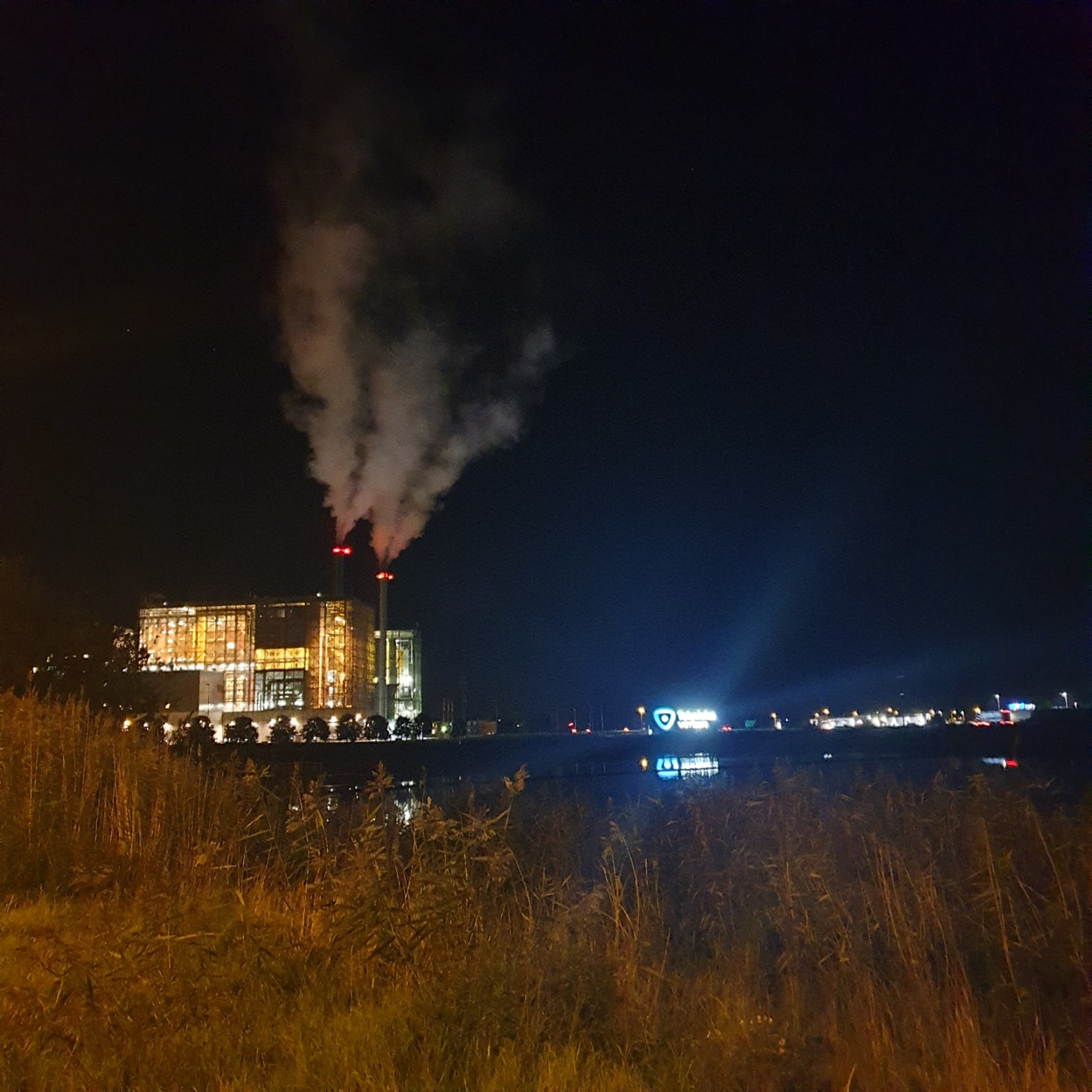Checking in with Deep Time - Re-Configuring Intergenerational Justice and Hope
This project aim to deal with the major research question of how to better re-tie the material and immaterial knots between past, present and future generations, and to suggest ways forward for moving towards innovative ways of checking in with our post-natural and materializing clocks.
"Every clock tells a story. Every clock takes a position in a debate about time. Every clock is an attempt to shape how people think about time" (Birth 2013).

Waste and deep time futures for multispecies Linköping: The garbage incineration facility of Linköping town at night, a multi-temporal site. This high-tech waste-to-energy plant at Gärstad in Östergötland, is situated on top of the old remains of an iron age sanctuary that has been excavated by archeologists. Gärstad locates thus an ancient heritage site, but it is also creating the CO2 heritage of the future far beyond this place today. Gärstad, as a clock site of the present, tells the deep time of planetary pasts and futures to come. Photo: Cecilia Åsberg
About
The project is methodologically innovative and aspires to have high impact on the approaches to sustainability, intergenerational justice and care in postnatural heritage management. Our project more particularly deals with how an engagement with materialities of the past and its temporalities could be enrolled in care for relations and place, now, and in the future. The overall objective is to re-jig how heritage could be tied to sustainable development in better ways. This project is inspired by research such as the AHRC funded project sustaining time http://www.sustainingtime.org, that explores what “times” are needed to build a more sustainable society and what alternatives there could be to industrial clock-time or the networked time of economics. This emerging field of research deals with innovative ways of intervening in dominant tempos, rythms and flows by “designing time” in new ways.
The designing of time, and trade-offs on what generation's time is counted and who's time is not, comes to the fore in issues of climate change and sustainable development. How to handle responsibilities and care between generations is of major importance in the transitions to sustainable futures. That heritage has links to more sustainable living and contributes to social, economic and environmental development has been discussed by many (see Fredengren 2012). However, there has been less discussion of how heritage tie in with the formation of time, and questions of justice between past-, present- and future generations. And perhaps the garbage of today is the heritage of tomorrow? This project also responds to the need for research into how people and local communities get to engage with the deep-time relations of their lives and what other potential times and “environmental clocks“, that could be encountered through heritage and garbage, like at the waste-to-energy plant in the municipality of Linköping.
Of particular interest to the current research proposal is the time philosophies of (Bastian 2016, Rose 2012) that show how sustainability is connected to a re-jigging of temporalities and responsibilities to both human and more than human others, and to discuss commitments that stretch over time. So far, traditional heritage management have had very little engagement with the thoughts and practices that spring out of the environmental humanities. Our research makes such connections, as it is located in this space between these different fields of research. It will draw together these discussions and contribute with a case-based study in order to add deep time perspectives in a variety of future makings.
Funding agency: FORMAS
Project leader: Christina Fredengren, with Cecilia Åsberg
Duration: 2018-2022
